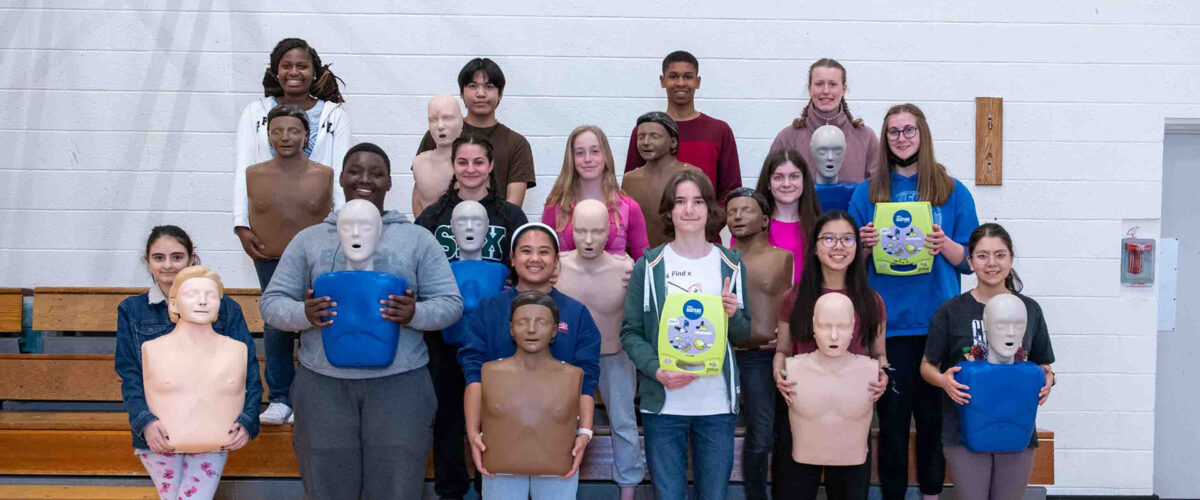The ACT High School CPR and AED Program:
- Empowers youth with lifesaving skills and knowledge they take to their present and future families and communities;
- Provides a CPR certificate (useful for job applications);
- Promotes leadership and civic responsibility, and interest in careers in health sciences.
-
View the latest CPR Guidelines for COVID-19
Heart and Stroke Foundation of Canada’s Modification to Public Hands-Only CPR during the COVID-19 pandemic
Guidance for the public to reduce the risk of virus transmission
During this unprecedented time of the COVID-19 pandemic, the Heart and Stroke Foundation of Canada has released recommendations based on expert opinion to reduce the risk of virus transmission for public responders while performing CPR or using an AED during a cardiac arrest. Click the link below for these recommendations and information from the Heart and Stroke Foundation:
https://www.heartandstroke.ca/articles/modification-to-hands-only-cpr-during-the-covid-19-pandemic
CPR Guidelines: 2015
Click to see the Heart and Stroke Foundation of Canada’s website for the 2015 guidelines for CPR.
-
Find out how Good Samaritan Acts in Canada protect CPR practitioners
In Canada, we have acts protecting bystanders who respond to health emergencies.
While each province or territory names the act differently, it is most commonly known as the Good Samaritan Act.
- Newfoundland and Labrador: Emergency Medical Aid Act
- Prince Edward Island: Volunteers Liability Act
- New Brunswick: Volunteer Emergency Aid Act
- Nova Scotia: Volunteer Services Act
- Québec: Civil Code of Québec
- Ontario:
Good Samaritan Act
Defibrillator Liability Protection (The Chase McEachern Act) - Manitoba: The Good Samaritan Protection Act
- Saskatchewan: The Emergency Medical Aid Act
- Nunavut: Consolidation of Emergency Medical Aid Act
- Alberta: Emergency Medical Aid Act
- Northwest Territories: Emergency Medical Aid Act
- Yukon: Emergency Medical Aid Act
- British Columbia: Good Samaritan Act

